Are you fascinated by the exotic allure of wild cats and wondering, “Can Caracals Be Pets?” While the idea of owning one of these striking creatures might seem appealing, it’s crucial to understand the realities of keeping a wild animal as a companion. At PETS.EDU.VN, we’re dedicated to providing you with comprehensive, science-backed information to help you make informed decisions about pet ownership, ensuring the well-being of both animals and humans. Discover why caracals are best admired in their natural habitats and explore the joys of owning domesticated cat breeds that offer a similar aesthetic without the inherent challenges.
1. Understanding the Caracal
The caracal (Caracal caracal), often referred to as the desert lynx, is a captivating wild cat species native to Africa, Central Asia, India, and the Middle East. These agile felines are characterized by their slender build, long legs, short, tan or sandy-colored coat, and distinctive long, tufted ears. Adult caracals typically weigh between 20 to 40 pounds, making them significantly larger than most domestic cats.
1.1 Caracal Subspecies
There are three recognized subspecies of caracal:
- Southern Caracal (C. c. caracal): Found in South Africa and East Africa.
- Northern Caracal (C. c. nubicus): Inhabits North and West Africa.
- Asiatic Caracal (C. c. schmitzi): Native to Central Asia and India.
1.2 Key Characteristics of Caracals
| Characteristic | Description |
|---|---|
| Size | Medium-sized wild cat, larger than most domestic cats |
| Weight | 20-40 pounds |
| Appearance | Slender build, long legs, tan or sandy coat, distinctive black ear tufts |
| Habitat | Africa, Central Asia, India, Middle East |
| Temperament | Solitary, territorial, primarily nocturnal; wild instincts |
| Social Behavior | Typically solitary animals, except during mating season or when females are raising young |
| Hunting Behavior | Skilled hunters, preying on birds, rodents, hyraxes, hares, and small antelopes |
| Conservation | Caracals face threats due to habitat loss, human conflict, and illegal trade; conservation efforts are crucial to protect their populations and natural environments |
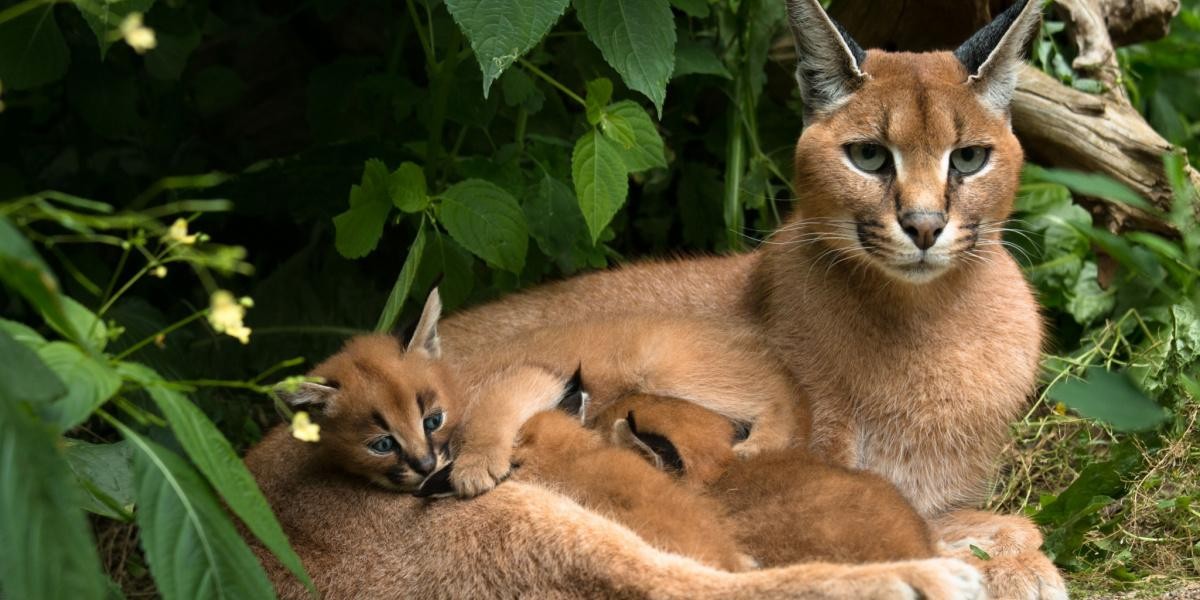
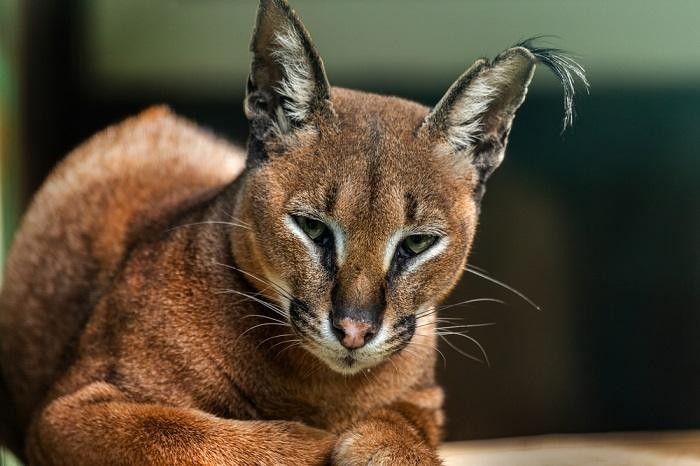
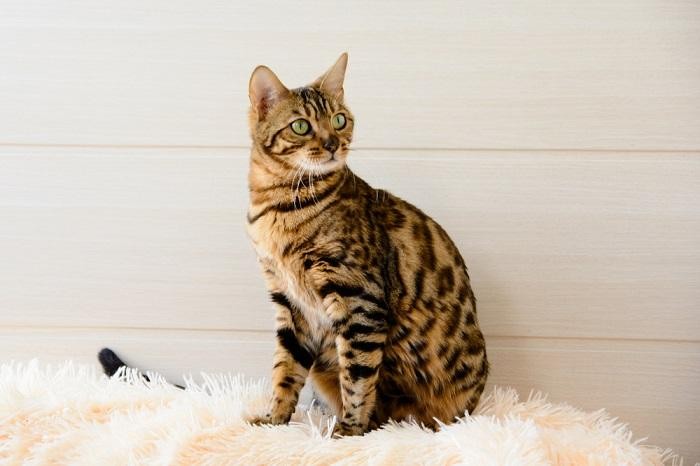
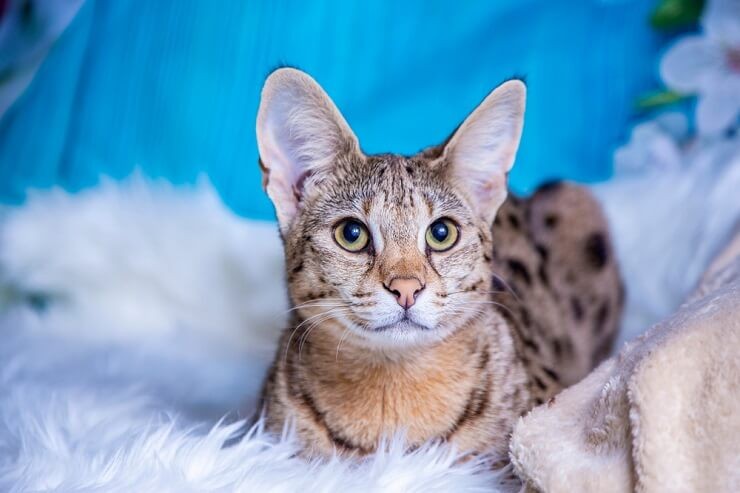
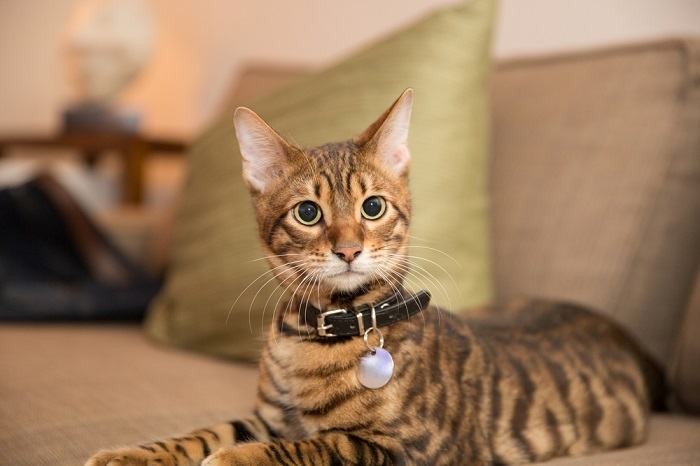
2. The Wild Nature of Caracals
While caracals share a distant ancestry with domestic cats, their fundamental nature remains distinctly wild. Unlike domesticated breeds that have evolved to coexist harmoniously with humans, caracals retain their innate instincts, territoriality, and potential for aggression.
2.1 Why Caracals Are Not Suitable Pets
- Unpredictable Behavior: Caracals are wild animals with inherent instincts that can be triggered at any time. This can lead to unpredictable and potentially dangerous behavior, particularly around children or other pets.
- Territorial and Destructive: Caracals are highly territorial and prone to behaviors like scratching, spraying urine, and defecating in the open, which can cause significant damage to a domestic environment.
- Specialized Dietary Needs: As carnivores, caracals require a very specific and specialized diet, often including raw meat, which can be difficult and expensive to provide.
- Veterinary Challenges: Finding a veterinarian experienced in treating exotic cats like caracals can be challenging and costly.
- Ethical Concerns: Keeping caracals as pets deprives them of the opportunity to express their natural instincts in a safe and appropriate environment, ultimately compromising their well-being.
2.2 The Importance of Natural Habitat
Caracals, like all wild animals, thrive in their natural habitat where they can roam freely, hunt, and engage in natural behaviors. Confining them to a domestic environment can lead to stress, frustration, and a diminished quality of life.
3. Legal Aspects of Caracal Ownership
The legality of owning a caracal varies significantly depending on your location. Some states or countries may allow the ownership of wild animals with a special license or permit, while others outright ban the practice.
3.1 State and Local Regulations
It is crucial to research and understand the specific laws and regulations in your area before considering caracal ownership. Even if it is legal, owning a wild animal is a significant responsibility that should not be taken lightly.
3.2 The Ethical Implications
Regardless of the legal status, the ethical implications of owning a caracal should be carefully considered. These animals are not domesticated and have complex needs that are difficult to meet in a domestic setting.
4. Exploring Domestic Cat Breeds with a Wild Look
If you admire the exotic appearance of caracals but recognize the challenges and ethical concerns associated with owning a wild animal, several domestic cat breeds offer a similar aesthetic without compromising on temperament or well-being.
4.1 Hybrid Breeds
Hybrid breeds are developed by crossing domestic cats with small wild cat species in the early stages of breed development. These breeds are fully established and recognized by cat breed registries like The International Cat Association (TICA).
4.2 Cat Breeds That Resemble Wild Cats
- Pixie-Bob: Known for its bobbed tail and wild appearance, the Pixie-Bob is a loving, active, and social breed.
- Chausie: With its sandy, reddish-brown, or gray coat, the Chausie resembles the caracal in appearance.
- Savannah: A hybrid breed developed using the African serval, the Savannah is curious, outgoing, and assertive.
- Bengal: With its unique coat patterns reminiscent of leopards and jaguars, the Bengal is energetic, outgoing, and curious.
- Serengeti: Developed to resemble the African serval, the Serengeti is confident, friendly, and active.
- Toyger: With its bold vertical stripped pattern, the Toyger resembles a miniature tiger and is docile, smart, and friendly.
4.3 Comparing Wild and Domesticated Cats
| Feature | Caracal (Wild Cat) | Domestic Cat (e.g., Bengal) |
|---|---|---|
| Temperament | Unpredictable, territorial, potentially aggressive | Docile, affectionate, social |
| Habitat | Wild environments (Africa, Asia, Middle East) | Domestic homes |
| Dietary Needs | Specialized diet, including raw meat | Commercial cat food |
| Veterinary Care | Requires specialized veterinary care | Standard veterinary care |
| Legal Restrictions | May be subject to legal restrictions or outright bans | Generally legal to own |
| Ethical Concerns | Raises ethical concerns about animal welfare and conservation | No major ethical concerns |
| Socialization | Solitary animals in the wild | Can adapt to living with humans and other pets |
| Trainability | Difficult to train due to wild instincts | Highly trainable, especially with positive reinforcement techniques |
| Environmental Enrichment | Requires large, enriched enclosures that mimic natural habitats | Thrives in stimulating indoor environments with toys, scratching posts, and interactive play |
| Safety Concerns | Potential safety risks to humans, especially children, and other pets due to powerful jaws, sharp teeth, and claws; prone to aggression | Generally safe around humans and other pets when properly socialized and cared for; aggression is rare |
| Conservation Status | Caracals face threats due to habitat loss, human conflict, and illegal trade; removing them from their natural habitats further jeopardizes their populations and overall conservation | Domestic cats have stable populations and do not face the same conservation threats as caracals; responsible breeding practices help maintain genetic diversity and overall health |
5. Caring for a Domestic Cat with a Wild Look
If you decide to bring a domestic cat breed with a wild appearance into your home, it’s essential to provide them with the appropriate care and enrichment to ensure their physical and mental well-being.
5.1 Essential Care Tips
- High-Quality Diet: Feed your cat a balanced and nutritious diet formulated for their age, breed, and activity level.
- Regular Veterinary Care: Schedule regular checkups and vaccinations to maintain your cat’s health.
- Enrichment and Play: Provide plenty of toys, scratching posts, and opportunities for interactive play to keep your cat mentally stimulated and physically active.
- Safe and Comfortable Environment: Create a safe and comfortable indoor environment with plenty of space to roam, explore, and rest.
- Socialization: Socialize your cat from a young age to help them develop into a well-adjusted and confident companion.
5.2 Understanding Breed-Specific Needs
Different breeds may have unique needs and predispositions to certain health conditions. Research your chosen breed thoroughly and work closely with your veterinarian to provide the best possible care.
6. The Role of PETS.EDU.VN
At PETS.EDU.VN, we are committed to providing accurate, reliable, and up-to-date information about pet ownership, animal behavior, and responsible pet care. Our goal is to empower pet owners to make informed decisions that prioritize the health and well-being of their animal companions.
6.1 Comprehensive Resources
Our website offers a wide range of articles, guides, and resources on various topics, including:
- Cat breeds and characteristics
- Nutrition and diet
- Health and wellness
- Behavior and training
- Responsible pet ownership
6.2 Expert Advice
Our team of experienced veterinarians, animal behaviorists, and pet care professionals are dedicated to providing expert advice and guidance to help you navigate the challenges and joys of pet ownership.
7. Call to Action: Find Your Perfect Companion
While the allure of owning a caracal may be strong, we encourage you to consider the ethical and practical implications of keeping a wild animal as a pet. Instead, explore the wonderful world of domestic cat breeds that offer a similar aesthetic without compromising on temperament or well-being.
7.1 Visit PETS.EDU.VN
Visit PETS.EDU.VN today to discover a wealth of information about cat breeds, care tips, and resources to help you find the perfect feline companion for your lifestyle.
7.2 Contact Us
If you have any questions or need further assistance, please don’t hesitate to contact us. We’re here to help you make informed decisions and provide the best possible care for your beloved pets.
Contact Information:
- Address: 789 Paw Lane, Petville, CA 91234, United States
- WhatsApp: +1 555-987-6543
- Website: PETS.EDU.VN
At PETS.EDU.VN, we believe that every pet deserves a loving home and responsible care. Join us in creating a world where animals thrive and humans and pets live in harmony.
8. Promoting Animal Welfare
Animal welfare is a core value at PETS.EDU.VN. We advocate for responsible pet ownership, ethical treatment of animals, and the conservation of wildlife.
8.1 Supporting Conservation Efforts
We encourage our readers to support organizations dedicated to protecting caracals and other wild animals in their natural habitats. By contributing to conservation efforts, you can help ensure that these magnificent creatures thrive for generations to come.
8.2 Adopting from Shelters and Rescues
If you’re considering adding a feline companion to your family, we encourage you to adopt from a local animal shelter or rescue organization. Countless cats are waiting for loving homes, and adoption can be a rewarding experience for both you and your new pet.
9. Dispelling Myths about Caracals as Pets
It’s crucial to address and dispel common myths surrounding caracals as pets to ensure that potential owners are fully informed about the realities of these animals.
9.1 Addressing Misconceptions
- Myth: Caracals can be tamed and domesticated like regular cats.
- Reality: Caracals are inherently wild animals with instincts that cannot be fully suppressed through domestication.
- Myth: Caracals are safe around children and other pets if raised from a young age.
- Reality: Even caracals raised from kittens can exhibit unpredictable and potentially aggressive behavior, posing a risk to children and other animals.
- Myth: Owning a caracal is a status symbol and demonstrates wealth and sophistication.
- Reality: Owning a caracal is not a responsible or ethical choice. True sophistication lies in respecting and protecting wild animals in their natural habitats.
- Myth: Caracals can be easily cared for in a typical home environment.
- Reality: Caracals require specialized care, including a specific diet, large enclosures, and veterinary expertise, which are difficult to provide in a domestic setting.
9.2 Promoting Responsible Pet Ownership
By dispelling these myths and promoting responsible pet ownership, we hope to encourage potential owners to make informed decisions that prioritize the well-being of both animals and humans.
10. Frequently Asked Questions about Caracals
Here are some frequently asked questions about caracals:
10.1 Common Inquiries
1. Are caracals friendly to humans?
Caracals are wild animals and are not inclined to be friendly toward humans. In the wild, caracals are solitary animals that prefer to live alone. Even caracal kittens bred to be sold as pets still have wild instincts, including an aversion to humans.
2. Is a caracal cat aggressive?
Caracals, even those bred to be sold as pets, retain their wild instincts. They can be aggressive toward humans and other animals like pet cats and dogs. Although caracals raised from kittens might learn to live with humans, these are still wild felines and can be extremely unpredictable, even dangerous. Like housecats, caracals will make sounds that warn of impending aggression, including growls and hisses. Attempting to tame a caracal found in the wild is not recommended by wildlife experts.
3. Can a caracal hurt you?
Caracals are small, so caracal attacks on humans are rare; however, they do happen occasionally, especially when people keep these exotic animals as pets. Any wild animal, including caracals, can be dangerous if cornered. Caracals are more likely to hurt children and the elderly, and can injure or even kill other pets like cats and dogs.
4. How much does a caracal cost?
Breeders raise and sell caracals as pets, and they can cost exorbitant amounts. Wildlife experts strongly warn against keeping caracals as pets, even if it is legal to do so in your state.
5. What is the average lifespan of a caracal?
In the wild, caracals typically live for about 12 years. In captivity, they can live for up to 17 years with proper care. However, keeping caracals in captivity raises ethical concerns about their well-being and quality of life.
6. Do caracals require specialized veterinary care?
Yes, caracals require specialized veterinary care from veterinarians experienced in treating exotic cats. Finding such care can be challenging and costly.
7. Are caracals prone to any specific health conditions?
Like other wild animals, caracals can be susceptible to various health conditions, including infectious diseases and parasites. They also require specific vaccinations and preventive care to maintain their health.
8. What is the legal status of caracal ownership in my state?
The legal status of caracal ownership varies depending on your location. Some states or countries may allow the ownership of wild animals with a special license or permit, while others outright ban the practice. It is crucial to research and understand the specific laws and regulations in your area before considering caracal ownership.
9. How can I support caracal conservation efforts?
You can support caracal conservation efforts by donating to organizations dedicated to protecting caracals and their habitats, advocating for responsible wildlife policies, and educating others about the importance of caracal conservation.
10. What are some ethical considerations of owning a caracal?
Ethical considerations of owning a caracal include the animal’s welfare, conservation, and public safety. Caracals are wild animals with complex needs that are difficult to meet in a domestic setting. Removing them from their natural habitats can have negative impacts on their populations and overall conservation. Additionally, caracals can pose safety risks to humans and other pets due to their unpredictable behavior and potential for aggression.
By addressing these frequently asked questions, we aim to provide clear and concise information about caracals and the implications of owning one.
11. Ongoing Research and Updates
The field of animal behavior and conservation is constantly evolving. At PETS.EDU.VN, we are committed to staying up-to-date on the latest research and providing our readers with the most accurate and relevant information possible.
11.1 Recent Studies
Recent studies have shed light on the importance of genetic diversity in caracal populations and the impact of habitat fragmentation on their survival. These findings underscore the need for continued conservation efforts to protect caracals and their natural environments.
11.2 New Treatment Method
Veterinarians are also developing new treatment methods for common health conditions in exotic cats, such as caracals. These advancements can improve the quality of care and extend the lifespans of these animals in captivity, although ethical considerations remain paramount.
| Advancement | Description | Benefit |
|---|---|---|
| Genetic Diversity Studies | Analyzing genetic diversity in caracal populations to assess the impact of habitat fragmentation and inform conservation strategies | Helps identify populations at risk and develop targeted conservation plans to maintain genetic health |
| Habitat Fragmentation Research | Investigating the effects of habitat fragmentation on caracal movement, behavior, and survival | Provides insights into how habitat loss affects caracal populations and informs strategies to mitigate these effects |
| New Treatment Methods | Developing and testing new treatment methods for common health conditions in exotic cats, such as caracals | Improves the quality of care and extends the lifespans of caracals in captivity, although ethical considerations remain paramount |
| Improved Diagnostic Techniques | Implementing advanced diagnostic techniques, such as advanced imaging and genetic testing, to detect and diagnose health issues in caracals early | Enables prompt and accurate diagnosis, leading to more effective treatment and better health outcomes |
| Enhanced Nutritional Strategies | Formulating enhanced nutritional strategies tailored to the specific dietary needs of caracals | Ensures optimal nutrition, promoting overall health, vitality, and longevity |
| Conservation Breeding Programs | Implementing carefully managed conservation breeding programs to increase genetic diversity and maintain healthy populations of caracals in captivity | Helps preserve the species and ensures that future generations have access to healthy and genetically diverse individuals |
| Collaboration with Local Communities | Collaborating with local communities to promote coexistence and reduce human-wildlife conflict | Fosters positive relationships and encourages responsible land management practices, protecting caracals and their habitats |
| Public Awareness Campaigns | Conducting public awareness campaigns to educate people about the importance of caracal conservation and responsible pet ownership | Increases understanding and support for caracal conservation, encouraging responsible pet ownership and reducing demand for exotic pets |
11.3 Stay Informed
Visit PETS.EDU.VN regularly to stay informed about the latest developments in animal behavior, conservation, and pet care.
12. Conclusion: Choosing Wisely
The decision of whether or not to own a caracal is a complex one with significant ethical, legal, and practical implications. While the allure of owning a wild animal may be strong, it’s essential to prioritize the animal’s welfare and consider the potential risks and challenges involved.
12.1 Responsible Pet Ownership
At pets.edu.vn, we advocate for responsible pet ownership and encourage our readers to make informed decisions that are in the best interests of both animals and humans. If you’re looking for a feline companion with a wild look, we encourage you to explore the wonderful world of domestic cat breeds that offer a similar aesthetic without compromising on temperament or well-being.
12.2 A Final Thought
Remember, true appreciation for wildlife lies in respecting their natural habitats and supporting conservation efforts that ensure their survival for generations to come.
Disclaimer: This article is intended for informational purposes only and does not constitute veterinary advice. Always consult with a qualified veterinarian for any health concerns or before making any decisions related to your pet’s health or treatment.
